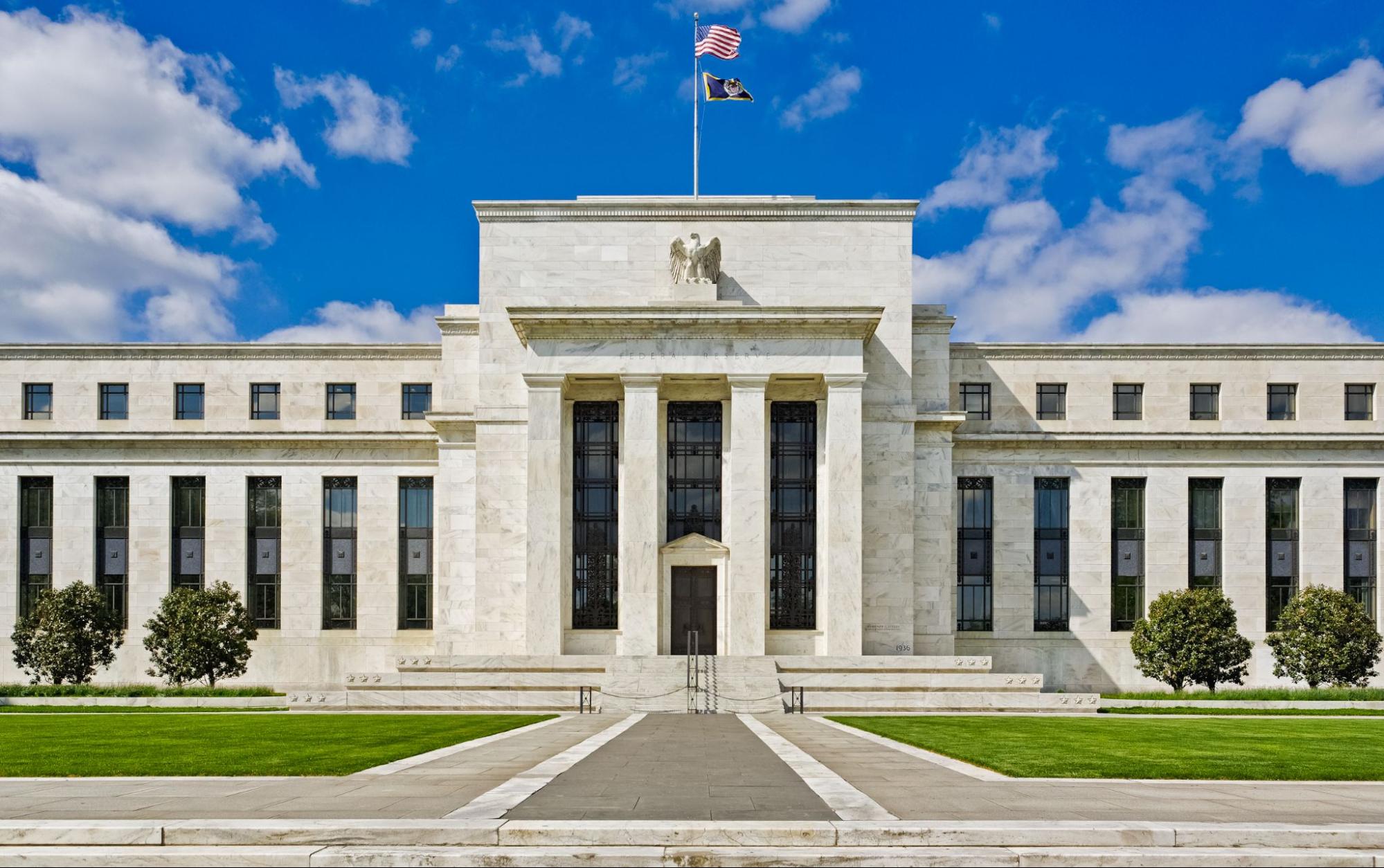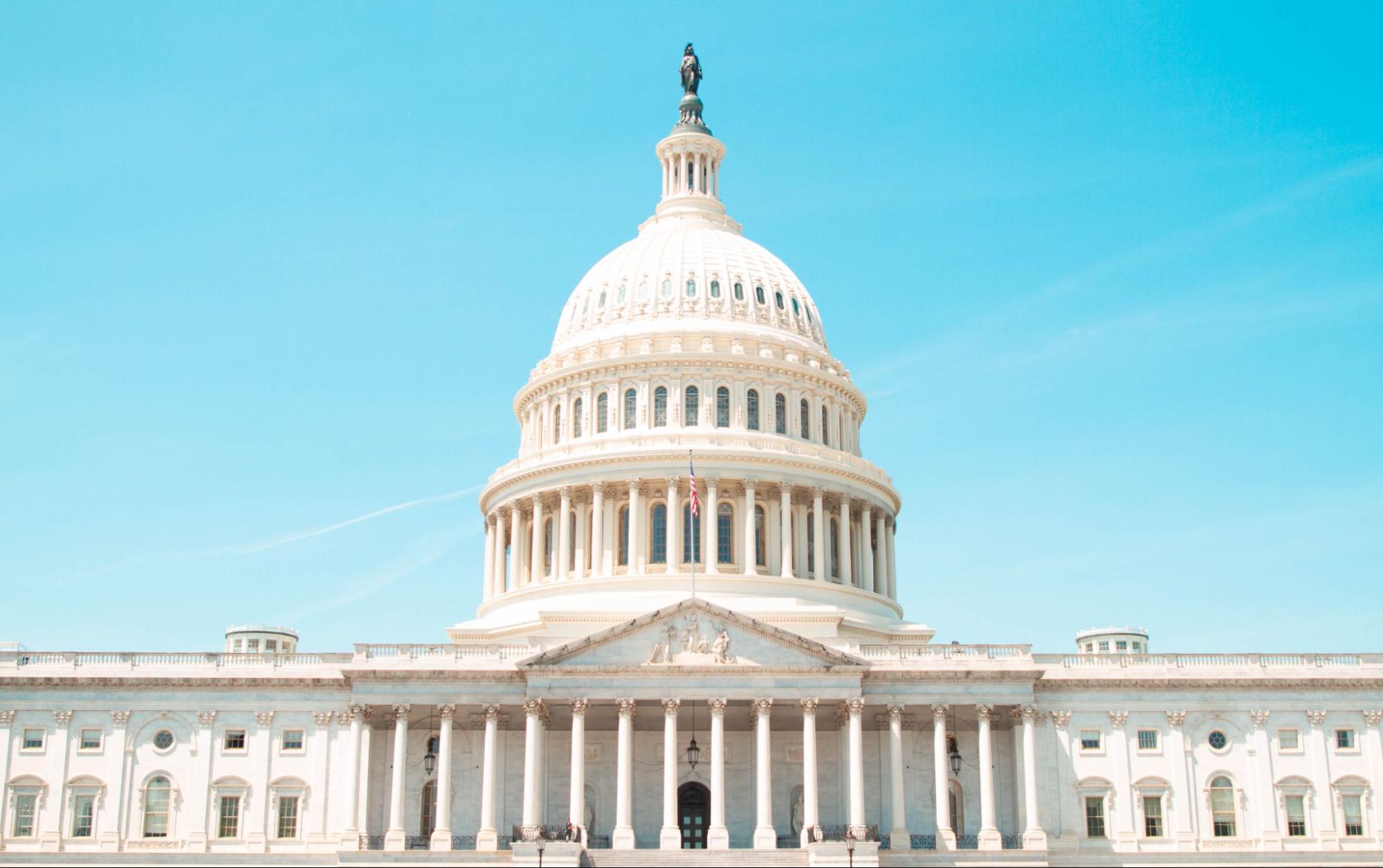Our chat with Ethereum's Vitalik Buterin

Ahead of the Merge, Ethereum co-founder Vitalik Buterin had an in-depth conversation with Coinbase CEO Brian Armstrong about the future of crypto. [Michael Ciaglo via Getty Images]
There’s never a dull moment on the blockchain. Here’s what you need to know this week:
Crypto stumbled after the Fed’s hawkish inflation remarks. Fed Chair Jerome Powell spooked crypto and stock markets on Friday.
Vitalik Buterin and Brian Armstrong discussed Ethereum. Highlights from a wide-ranging chat between the ETH co-founder and Coinbase’s CEO.
The most important election season in crypto’s history is approaching. Learn how you can become engaged on the key issues ahead of the U.S. midterms.
MARKET UPDATE
The Fed’s latest inflation remarks rocked crypto and stock markets. What happens next?
Every year since 1981, key leaders from central banks all over the world, including top brass from the U.S. Federal Reserve, gather in Jackson Hole, Wyoming to assess the global economy’s most pressing issues and discuss plans to address them — kind of a high stakes vibe check for global financial markets.
At last year’s event, Fed Chair Jerome Powell predicted that rising inflation would be “transitory,” and unlikely to stay much above 2%. A full year later, with inflation at its highest point in decades and still hovering north of 8%, Powell took a notably different tone about taming inflation last Friday in Wyoming, dashing investor hopes for a straightforward “soft landing” and prompting both crypto and stock markets to fall sharply.
So what did the Fed say exactly, why did it impact crypto, and what should investors be on the lookout for as September nears? Let's dive in.
On Friday, Powell said Fed policy actions could “bring some pain to households and businesses” as an “unfortunate cost of bringing down inflation.” These comments, his most hawkish to-date about fighting inflation, suggested the continuation of higher interest rate hikes, a tool that also chills investor confidence across markets. Since his remarks, Bitcoin revisited sub-$20,000 levels and Ethereum has shed about 9%, while the tech-heavy NASDAQ and the S&P 500 have dropped roughly 5% and 4%, respectively.
Why does the Fed have so much impact on crypto markets? The short answer: It’s complicated. The longer answer: One of the primary ways the Fed maintains price stability in the economy is by setting interest rates, which determine how cheap (or expensive) it is to borrow money. In a low-interest climate — like during the pandemic stimulus era — investors often pile into riskier assets like tech stocks and crypto in search of growth (remember how sharply BTC rose from 2020 to 2021?). But too much of this so-called “easy money” can contribute to inflation as demand outpaces supply — that’s (roughly) why the U.S. is seeing surging inflation right now.
Historically, inflation can have severe, long-term consequences, hence the Fed’s aggressive efforts to tame it. But the side effects of rate hikes can be far reaching as well. Initially, investors fled riskier assets like crypto (BTC is down 70% since November, when investors first feared the Fed would need to hike rates), but ripple effects can include a “softer labor market” (you’ve likely seen more layoff news lately) and even recession. So when Powell mentioned “maintaining a restrictive policy stance for some time,” markets lost confidence that the fight to end inflation was nearly over — hence Friday's steep selloff.
Crypto Investors are also bracing for September, a typically rocky month for Bitcoin. Over the last five years, September has been the worst month for BTC, with the top cryptocurrency by market cap having seen an average price drop of about 10%. BTC’s history of late-summer weakness is being met by skittishness in the options market as traders are paying higher premiums for protection below the $18,000 mark.
Why it matters… As the macroeconomic picture grows cloudier following Powell’s remarks, stock and crypto markets (both still highly correlated) are bracing for even stormier conditions ahead. But zoom in a bit, and the news looks more optimistic, as global crypto adoption continues to accelerate, financial institutions expand their digital asset offerings, and in the coming weeks, the long-awaited Ethereum Merge will upgrade the underlying tech and economics of the second-biggest cryptocurrency, a technical feat one market analyst described as a “once-in-a-lifetime moment.”
CRYPTO CHAT
Ethereum’s Vitalik Buterin and Coinbase’s Brian Armstrong talk the Merge and crypto’s future
We’re officially on the verge of The Merge. Next Tuesday, Ethereum’s blockchain is anticipated to begin its transition from proof-of-work (PoW) mining to more energy-efficient proof-of-stake (PoS) validation, shifting the way the DeFi-enabling network verifies transactions. Ahead of the upgrade — a technological endeavor years in the making — Ethereum’s co-creator Vitalik Buterin sat down with Coinbase CEO Brian Armstrong in a wide-ranging conversation about the blockchain, the importance of decentralization, and how crypto will shape the future of technology.
Below are a few highlights from their discussion (which have been edited and condensed for clarity.) You can listen to Brian and Vitalik’s full conversation on our Around the Block podcast.
On the advantages of Ethereum’s upgraded PoS blockchain
Vitalik Buterin: It is more accessible to be a participant and it's even more censorship resistant to be a participant.
If you're a [PoW] miner, you [need] a large amount of capital to make a mining farm, and you have to be pretty significant in size. These are things that are quite detectable. Government has plenty of experience detecting large energy consumers in the context of wanting to arrest people growing the wrong kind of plants from time to time.
Whereas in PoS, all you need is just a computer with an internet connection somewhere. And that’s much more censorship resistant. It's much smaller, more nimble, and more people can do it because of the lower capital requirements.
If you want to hear the pro-PoW view, there’s plenty of [Twitter] accounts with words like HODL in their name that you can consult for those views.
On the early days of PoS as a theoretical concept
VB: Personally, I was never hostile to PoS. If you look back to some of the articles that I wrote in Bitcoin Magazine in 2013 — I wrote one piece about how PoS is still a very new idea, and there's still a bunch of problems people are thinking about.
Over the course of 2014, [Ethereum developers] were doing research to see just how far this can go. Can we make Proof of Stake actually be more secure than Proof of Work?
Brian Armstrong: I have to admit, I was actually skeptical of PoS when I first heard about it. But after a couple of years, I really got proved wrong on that, and I started looking more into it. I credit [Coinbase co-founder] Fred Ehrsam. I think he was watching a lot of this stuff closely and he pushed me to take another close look at it, and just seeing Vitalik make progress on it, and the apps that started to come out.
I think we eventually came around to this idea at Coinbase where like, okay, you know what? We're gonna have to be agnostic on every chain that's coming out, every token. We're gonna have to support many things over time.
On key themes for the future of the crypto industry
VB: International inclusiveness and international diversity. It's something that's been very important for me personally. And I think it's something that the crypto space, especially historically, has really done a very good job of.
BA: Let's all work together. There's too many little tribal things happening in crypto. It's not just Bitcoin. There's a million apps and tokens and things out there. Sometimes people get too inwardly focused about which one's better, but the whole point of this is: Let's just get a couple billion people in the world using crypto every day.
VB: If you believe in crypto, because you want crypto to bring about some particular thing, then go build the thing. We need to have a bit more of that lovely, juicy, definite optimism in our crypto world.
AROUND COINBASE
Understanding what’s at stake for crypto in the U.S. midterm elections, and more of the latest Coinbase news
This year’s U.S. midterm elections “are the most important in crypto’s history,” says Coinbase Chief Policy Officer Faryar Shirzad. That’s why Coinbase has launched a voter registration and education initiative to help encourage the crypto community to get engaged in the upcoming election and learn more about where candidates stand on policy issues central to crypto’s future.
The U.S. Treasury Department’s decision to sanction cryptocurrency mixer Tornado Cash has raised a number of critical questions related to privacy and censorship on the blockchain. Coinbase Institute Director Hermine Wong led a panel discussion to explore the implications of this action and answer key questions from the crypto community, which you can watch here.
Coinbase has confirmed that it will be fully supporting the upgraded Ethereum Proof of Stake chain following the Merge, and will evaluate any potential future forks of the Ethereum network that emerge on a case by case basis in alignment with our standard asset listing policy. See our guide on what to expect from Coinbase regarding the Merge here.
If you’re looking to explore more ways to receive yield from your crypto, check out Coinbase’s revamped guide to our suite of Earn products, which includes Staking, DeFi yield, and standard rewards.
TOKEN TRIVIA
Which of the following is not crypto slang?
A
gm!
B
Rekt
C
Gool
D
FUD
Find the answer below.
Trivia Answer
C
Gool
Coinbase Bytes
Your weekly digest of crypto news
Learn how we collect your information by visiting our Privacy Policy











